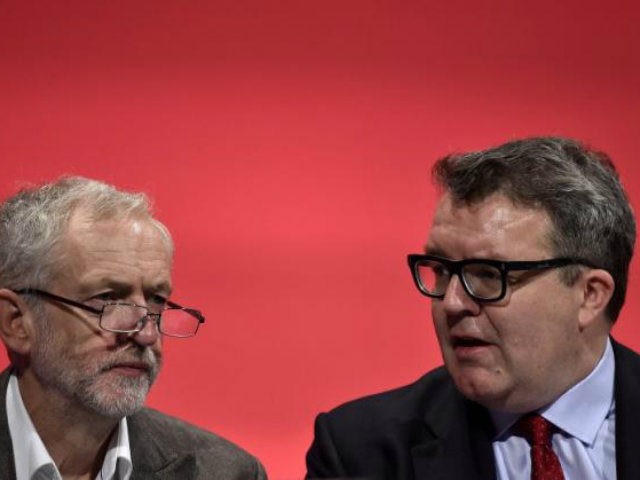(Reuters) – Nearly 76 years to the day since Leon Trotsky was murdered in Mexico with an ice-pick on Josef Stalin’s orders, the Russian revolutionary has returned to haunt Britain’s opposition Labour Party in the turmoil sparked by the Brexit vote.
Labour was thrust into one of the biggest crises in its 116-year history after Britain’s June 23 vote to leave the European Union, when most of the party’s lawmakers responded by voting to withdraw support for left-wing leader Jeremy Corbyn.
Less than a year into the job, Corbyn now faces a leadership challenge from lawmaker Owen Smith who, like most of his colleagues in the party’s contingent in parliament, says Corbyn was lacklustre in campaigning to stay in the EU and too poorly organised to effectively oppose the Conservative government.
But the decision is in the hands of party members, including more than 100,000 who joined this year, and polls show members still favour Corbyn.
The party’s deputy leader, Tom Watson, who has tried to persuade Corbyn to quit, raised the pitch of the rhetoric by saying some of the new members were Trotskyite infiltrators from the far-left, who saw Labour as a vehicle for revolution.
“There are Trots that have come back to the party, and they certainly don’t have the best interests of the Labour Party at heart,” Watson said in an interview with the Guardian newspaper.
Momentum, a Corbyn-supporting grassroots movement which says it wants to ensure Labour implements socialist policies such as wealth distribution, dismissed Watson’s remarks as conspiracy theories.
“There is no return of Trotsky’s ghost,” Jon Lansman, one of Momentum’s senior figures, told Reuters. “The influx to the Labour Party of hundreds of thousands of mainly young people with no prior history of involvement in political parties means that Trotskyism has never been more irrelevant to British politics.”
POLITICAL FERMENT
But the references to a 20th Century revolutionary are still a reminder of the fractious heritage of a party that moved firmly to the centre during 13 years in power under prime ministers Tony Blair and Gordon Brown, but whose members voted to reject that shift in selecting Corbyn last year.
“There are some old hands twisting young arms in this process … They are caucusing and factionalising and putting pressure where they can, and that’s how Trotsky entryists operate,” Watson said.
In British Labour history, “Trotskyite” was used to describe militant Marxist campaigners who battled the party’s leaders in the 1970s and 1980s. “Entryism” refers to a tactic Trotsky encouraged, under which far-left Communists would join more mainstream Socialist movements and radicalise them.
Alex Callinicos, professor of European studies at King’s College London, who and said he himself could be described as Trotskyite in a broad sense, said Trotsky “still captures people’s imagination”.
“He stood for the idea of international revolution and self-organised revolution … Trotsky acts as reference point for those who do not like capitalism.”
But while some Labour members may be Trotskyites, they were not to blame for the party’s turmoil, Callinicos added.
“The Labour Party is imploding. What is happening in Britain after the Brexit vote is more broadly a political ferment,” he said. “Britain has to work out what it is doing in the world.”

COMMENTS
Please let us know if you're having issues with commenting.